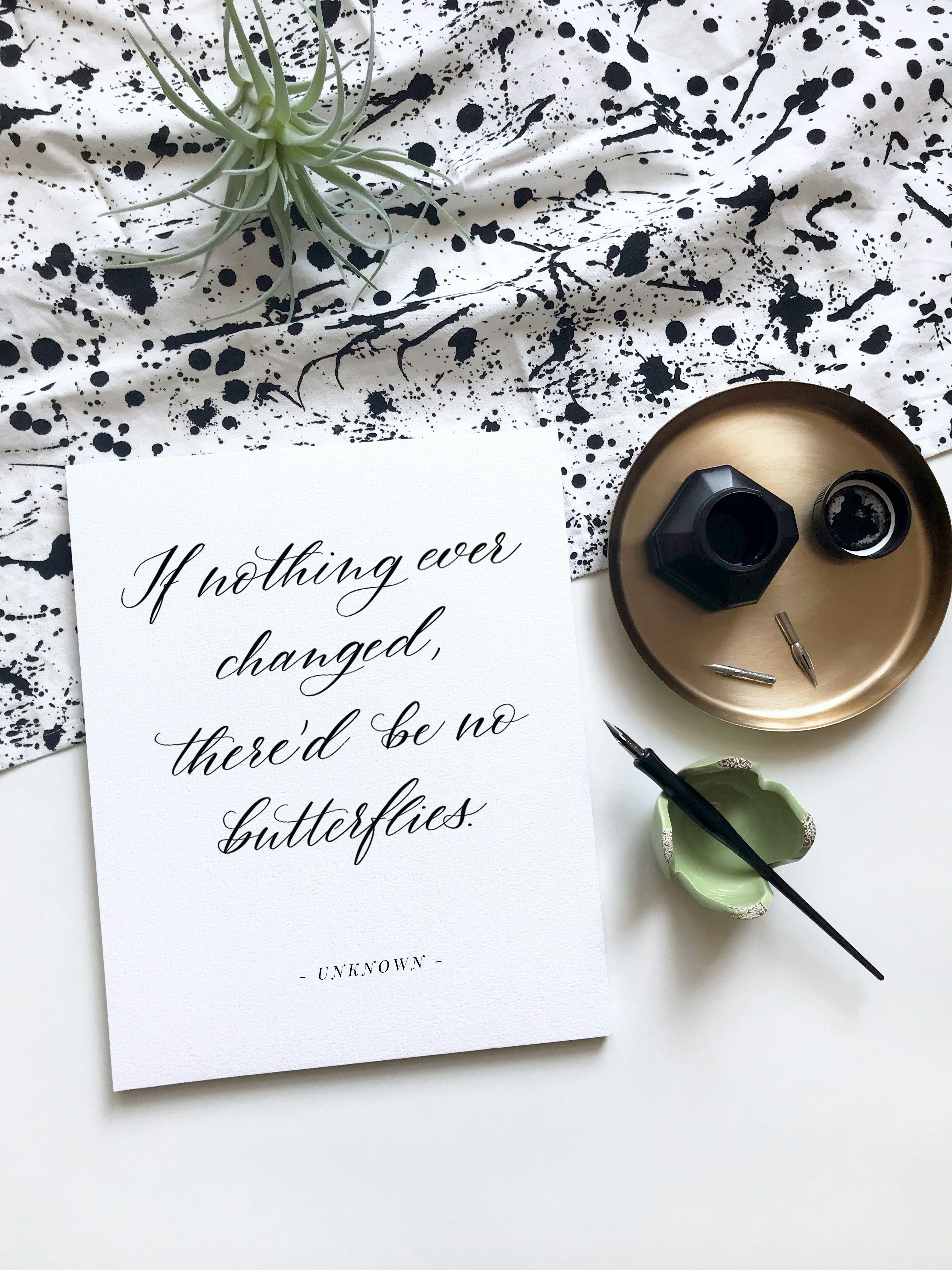In today’s fast-paced and ever-changing world, it’s easy to lose track of who we truly are and what we want. That’s why developing a stronger sense of self-awareness is crucial for personal growth and fulfillment. By honing in on our thoughts, emotions, and actions, we can gain valuable insights into our strengths, weaknesses, and values. In this article, you’ll discover practical tips and techniques to help you deepen your self-awareness, paving the way for a more confident and authentic version of yourself. So, let’s embark on this empowering journey of self-discovery together.
Understanding Self-Awareness
Self-awareness is the foundation of personal growth and development. It is the ability to introspect and gain insight into your thoughts, feelings, and behaviors. By understanding who you are and how you interact with the world, you can make better choices, build stronger relationships, and lead a more fulfilling life.
Defining self-awareness
Self-awareness is often described as the ability to accurately perceive and evaluate oneself. It involves being aware of your emotions, thoughts, values, and beliefs, as well as how these aspects of your identity shape your behaviors and interactions with others. It is about understanding yourself on a deep and meaningful level, and being able to reflect on your own experiences and actions.
Benefits of self-awareness
Developing self-awareness can have a multitude of benefits. First and foremost, it enables you to make conscious choices rather than being driven by unconscious patterns and habits. It allows you to understand and manage your emotions effectively, leading to improved emotional well-being. Self-awareness also enhances your decision-making abilities and helps you identify and capitalize on your strengths. Additionally, it improves your communication skills, empathy, and overall relationships with others.
Reflecting on Your Thoughts and Feelings
To enhance your self-awareness, it is crucial to reflect on your thoughts and feelings regularly. This introspective process can help you gain a deeper understanding of yourself and your emotions.
Recognizing your emotions
Start by paying attention to your emotions throughout the day. Notice when you feel happy, sad, angry, or anxious, and try to identify the underlying reasons for these emotions. By acknowledging and understanding your emotional experiences, you can better manage them and prevent them from negatively impacting your well-being.
Understanding your thought patterns
Become aware of your thought patterns and the beliefs that shape them. Notice any recurring or negative thoughts that may be holding you back. By understanding your thought processes, you can challenge and reframe negative beliefs, allowing for personal growth and positive change.
Identifying triggers and reactions
Take note of situations or events that trigger strong emotional responses in you. Reflect on why these triggers affect you and how you typically react in those moments. By identifying your triggers and reactions, you can consciously choose how to respond instead of being controlled by automatic responses. This self-awareness empowers you to make more intentional choices and cultivate healthier coping mechanisms.
Examining Your Values and Beliefs
Our values and beliefs guide our behaviors and shape our worldview. Reflecting on and examining them is crucial for self-awareness.
Defining your values
Identify the core values that are most important to you. These values act as guiding principles that influence your decisions, actions, and relationships. Examples of values include honesty, compassion, growth, and success. By identifying your values, you can align your life with what truly matters to you, leading to a greater sense of fulfillment.
Assessing your belief system
Take a closer look at your beliefs – the ideas and assumptions that you hold to be true. Consider how these beliefs were formed and if they still serve you in a positive way. Some beliefs may be limiting or outdated, preventing you from reaching your full potential. By examining your belief system, you can challenge and replace limiting beliefs with empowering ones, fostering personal growth and self-acceptance.
Identifying any conflicts
Sometimes, our values and beliefs may clash, creating inner conflicts. Identify any conflicts that you may be experiencing and explore the root causes for these clashes. By resolving these conflicts and aligning your values and beliefs, you can experience greater inner harmony and live in integrity with yourself.
Practicing Mindfulness
Mindfulness is a powerful tool for cultivating self-awareness. It involves being present in the moment and paying attention to your thoughts, emotions, and bodily sensations without judgment.
Definition of mindfulness
Mindfulness is the practice of intentionally focusing your attention on the present moment, without being overwhelmed by distractions or judgments. It allows you to observe your thoughts and emotions without getting caught up in them, fostering a greater sense of self-awareness and emotional resilience.
Engaging in mindfulness exercises
Incorporating mindfulness exercises into your daily routine can significantly enhance your self-awareness. Simple practices like deep breathing, body scans, and mindful meditation can help you become more attuned to your thoughts and emotions. Regular mindfulness practice can also improve your concentration, reduce stress and anxiety, and promote overall well-being.
Seeking Feedback
Seeking feedback from others is an invaluable way to gain insights into yourself and your interactions with the world.
Importance of feedback
Feedback provides an external perspective on your behaviors, communication style, and impact on others. It can shed light on blind spots and help you identify areas for improvement. Receiving feedback from trusted sources allows you to gain a more holistic view of yourself, enabling personal growth and development.
Finding trustworthy sources
When seeking feedback, it’s essential to choose trustworthy sources who have your best interests at heart. Friends, mentors, coaches, or therapists can provide valuable feedback and guidance. Be open to constructive criticism and use it as an opportunity for self-reflection and growth.
Acting on feedback
Receiving feedback is only the first step. To enhance your self-awareness, it’s important to actively reflect on the feedback you receive and consider how it aligns with your self-perception. Identify any patterns or themes in the feedback and develop a plan of action to address areas for improvement. Embrace feedback as a valuable tool for personal and professional growth.
Exploring Personal Strengths and Weaknesses
Recognizing your strengths and weaknesses is essential for building self-awareness and leveraging your full potential.
Recognizing your strengths
Take stock of your unique qualities, talents, and skills. Identify the areas where you excel and bring value to the world. Reflect on past accomplishments and positive feedback from trusted individuals. Recognizing your strengths allows you to focus on them and build upon them, fostering greater self-confidence and success.
Acknowledging your weaknesses
Just as important as recognizing your strengths is acknowledging your weaknesses. Be honest with yourself about areas where you may struggle or need improvement. Embrace the opportunity to grow and learn from your weaknesses without judgment or self-criticism. This self-awareness enables you to seek support and opportunities for growth, ultimately leading to personal and professional development.
Developing a plan for improvement
Once you have identified your strengths and weaknesses, develop a plan for improvement. Set specific and achievable goals tailored to your areas of weakness. Seek opportunities for learning, practice, and feedback. Remember to celebrate your progress along the way. By actively working on your weaknesses, you can transform them into strengths, fostering personal growth and self-awareness.

Cultivating Empathy
Empathy is the ability to understand and share the feelings of others. Cultivating empathy is an essential aspect of self-awareness as it helps us develop deeper connections with others and gain a more profound understanding of ourselves.
Understanding empathy
Empathy involves stepping into someone else’s shoes, understanding their emotions, and responding with compassion and kindness. It requires active listening, empathy, and an open heart. By developing empathy, you can strengthen your relationships, enhance your communication skills, and deepen your self-awareness.
Practicing active listening
Active listening is a fundamental skill for cultivating empathy and self-awareness. When engaging in a conversation, focus on truly hearing and understanding the other person’s perspective. Avoid interrupting or formulating responses in your mind. Instead, be fully present and listen with curiosity and an open mind. This practice fosters empathy and allows for a deeper connection with others.
Putting yourself in others’ shoes
To cultivate empathy, make an effort to see situations from multiple perspectives. Reflect on how others may be feeling, particularly in challenging or conflict-laden situations. Allow yourself to genuinely empathize with their experiences, even if you may not agree or have had similar experiences. Empathy broadens your understanding of diverse perspectives and enriches your self-awareness.
Setting Personal Goals
Setting personal goals is a powerful way to foster self-awareness and achieve personal growth.
Defining SMART goals
SMART goals are specific, measurable, achievable, relevant, and time-bound. When setting goals, ensure they are clear and well-defined, so you have a clear direction to work towards. Setting SMART goals helps you stay focused, motivated, and accountable throughout your self-awareness journey.
Creating an action plan
Once you have set your goals, create an action plan that outlines the specific steps you need to take to achieve them. Break down your goals into smaller, manageable tasks and set a timeline for each task. By creating a plan, you increase your chances of success and maintain a sense of direction and purpose.
Reviewing and revising goals
Periodically review and revise your goals to ensure they remain aligned with your changing aspirations and personal growth. Regularly assess your progress and make any necessary adjustments to your action plan. Celebrate milestones along the way and use setbacks as opportunities for learning and growth. By reviewing and revising your goals, you can stay on track and continually strive for self-improvement.
Building Self-Confidence
Self-confidence is an essential aspect of self-awareness. It is the belief in your abilities and worth, and it empowers you to take risks, pursue your goals, and overcome challenges.
Recognizing your accomplishments
Take time to acknowledge and celebrate your achievements, whether big or small. Reflect on your past successes and the skills and strengths that contributed to them. Recognizing your accomplishments builds self-confidence and reinforces your belief in your abilities.
Surrounding yourself with positive influences
Surround yourself with positive influences – people who support and uplift you. Seek out individuals who believe in your potential and bring out the best in you. By surrounding yourself with positivity and encouragement, you can cultivate a stronger sense of self-confidence and belief in yourself.
Challenging negative self-talk
Become aware of your inner critic and challenge negative self-talk. Replace self-limiting beliefs with empowering affirmations. Practice self-compassion and remind yourself of your worth and capabilities. By reframing negative self-talk, you can build a more positive and confident self-perception.
Embracing Self-Reflection
Self-reflection is a key component of self-awareness. By allocating time for self-reflection, you can deepen your understanding of yourself and ensure continuous personal growth.
Making time for self-reflection
Set aside dedicated time for self-reflection in your routine. Find a quiet and comfortable space where you can be alone with your thoughts. Create a self-reflection practice that works for you, whether that involves journaling, meditation, or engaging in a solitary activity that allows for introspection.
Journaling for self-discovery
Journaling is a powerful tool for self-discovery and self-reflection. Write freely about your thoughts, feelings, and experiences. Use journaling prompts to delve deeper into your emotions and gain insights into yourself. Reviewing your journal entries periodically can reveal patterns, highlight growth areas, and reinforce self-awareness.
Revisiting and adjusting your self-awareness journey
Regularly revisit and adjust your self-awareness journey as you grow and evolve. Adapt your practices as needed and remain open to new experiences and perspectives. Celebrate the progress you have made while embracing the continuous nature of self-awareness. By revisiting and adjusting your journey, you can maintain a strong sense of self-awareness throughout your life.









